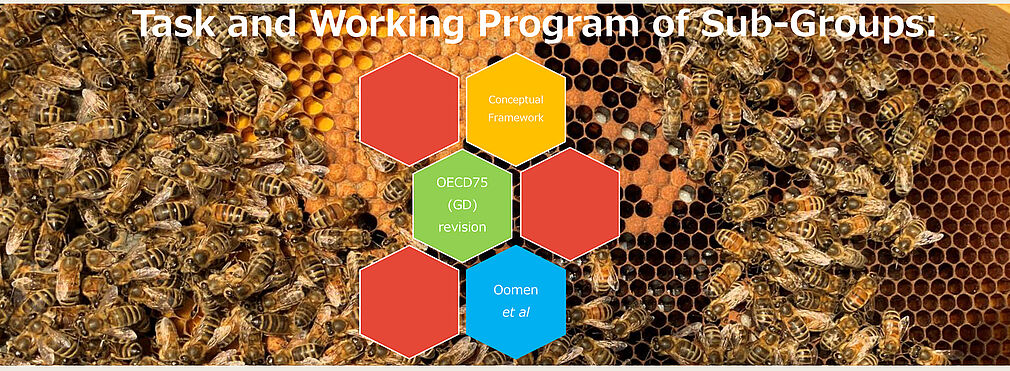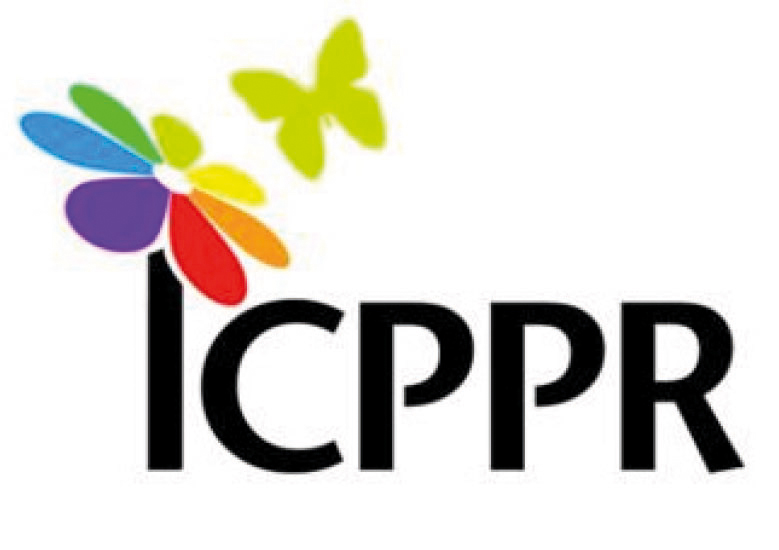Inhalt: Bee Brod

Founded at the 9th Symposium held at York, UK, in 2005
CURRENT CHAIRS
Verena Tänzler (Bayer) | verena.taenzler@bayer.com
Lukas Jeker (Agroscope) | Lukas.jeker@agroscope.admin.ch
Selwyn Wilkins (Fera) | Selwyn.Wilkins@fera.co.uk
Conceptual Framework
CONTACT
maryam.sultan@bayer.com
Background
- Where lower tier testing has indicated potential effects on honey bee brood, one of the problems is that there is a lack of a clear structure or guidance for higher tier refinement. The tests available are; OECD 75, Oomen et al and their variants (large-scale colony feeding studies also considered), but under what circumstances should a particular test be considered?
- Aims: To develop a conceptual framework in which the above testing methods can be applied most effectively. Consideration has been given to the pros and cons of the methods and to the type of chemical being evaluated.
Download: Draft Version (pdf)
Meeting/Meeting Minutes
OECD75 (GD) revision
CONTACT
verena.taenzler@bayer.com
Background
- Guidance Document describes a semi-field test method to assess effects on honey bee brood arising from PPPs (particularly IGRs) applied as spray applications
- Guidance used since 2007 without revision
- Guidance validated and ring-tested (fenoxycarb) although the ring testing was limited (mainly Germany through AG Bienenschutz)
- Limitations of the study (i.e. “caging effect”), variability between replicates
- Validity Criteria?
Suggested modifications for 'quick' revision
- Technical improvements/update: digital photo assessment, colony assessments
- Number of colonies ≥ 4 instead of ≥ 3
- General update of wording (i.e. foraging activity, PPP, test chemical)
- Reduction of level of foraging activity before application to 5 bees/m2
- Option for additional colony assessments and BFDs covering two brood cycles (extend brood cycles as an option)
- Verification of exposure
- Update/recommendations for statistical procedures of the results
- BTR as main endpoint of the outcome of the study (BI & CI??)
- Detailed reporting
Meeting/Meeting Minutes
Oomen et al
CONTACT
johannes.lueckmann@rifcon.de
Background
- Method has has been used as a screening test for effects on brood.
- The original paper gives only a rough description and was not validated or ring-tested
- 2012: Evaluation of historical acute Oomen study data (Schmitzer & Lückmann 2013)
- 2013: Chronic ring-testing (AG Bienenschutz)
- 2014: Presentation of the ring-test results ICPPR symposium Ghent (Lückmann & Schmitzer 2015)
- 2015: Asssessment of BTRs deriving from acute and chronic feeding studies and BTRs deriving from OECD GD 75 semi-field studies;
- (Lückmann, Becker & Schmitzer 2015)
- 2018: Extension of the topic by considering also BTRs obtained under full field conditions (EPPO 170 + OECD GD75) (Lückmann, Becker, Schmitzer & Sczesniak, 2018 and Lückmann & Tänzler at this symposium with an update)
